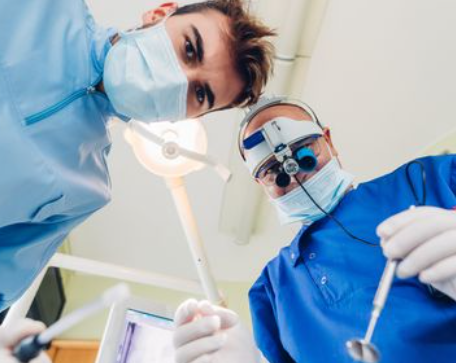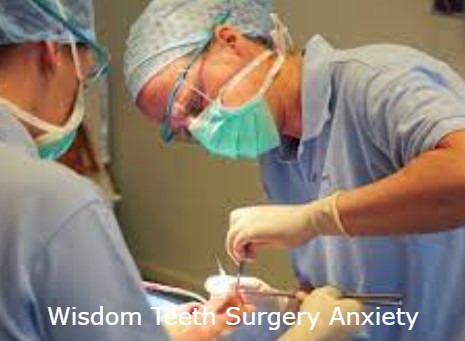Wisdom Teeth Surgery Anxiety
Do you suffer from wisdom teeth surgery anxiety?
Learn effective strategies to overcome your anxiety and make the experience as smooth as possible.
Gain insights from dental experts and discover practical tips to alleviate fear and anxiety associated with this common dental procedure.
Introduction

Wisdom teeth surgery is a common dental procedure that many people undergo in their late teens or early twenties.
While the surgery itself is routine, the anticipation and fear leading up to it can cause significant anxiety for patients.
This article aims to address the issue of wisdom teeth surgery anxiety and provide expert advice on how to overcome fear and anxiety associated with the procedure.
We'll delve into various strategies, tips, and insights shared by dental professionals, ensuring that you're well-prepared and confident before undergoing wisdom teeth surgery.
Wisdom Teeth Surgery Anxiety: Understanding the Fear

Wisdom teeth surgery anxiety refers to the apprehension, worry, or unease experienced by individuals facing the prospect of undergoing this dental procedure.
The fear may stem from various factors, including the fear of pain, complications, anesthesia, or simply the unknown.
It's essential to acknowledge and address these concerns to ensure a smoother experience.
Let's explore some common fears associated with wisdom teeth surgery anxiety:
Fear of Pain and Discomfort
The fear of pain is one of the most common reasons for anxiety before any dental procedure.
Thoughts of discomfort during and after the surgery can intensify anxiety levels.
However, it's crucial to understand that advancements in anesthesia and pain management techniques have significantly reduced the pain associated with wisdom teeth surgery.
Concerns About Complications
The possibility of complications during or after the surgery can contribute to anxiety.
While complications are rare, they can include infections, bleeding, dry socket, or nerve damage.
Understanding the low likelihood of these complications and their treatability can help alleviate anxiety.
Anesthesia Related Anxiety
The use of anesthesia during wisdom teeth surgery can be a source of anxiety for some individuals.
The fear may revolve around possible adverse reactions or being unconscious during the procedure.
However, it's important to remember that the dental team comprises trained professionals who prioritize patient safety and closely monitor anesthesia administration.
Fear of the Unknown
Fear of the unknown is a common human emotion, and it can be particularly unsettling when it comes to medical procedures.
Not knowing exactly what to expect during wisdom teeth surgery can contribute to anxiety.
Gaining knowledge and understanding about the procedure can help alleviate this fear.
Strategies to Overcome Wisdom Teeth Surgery Anxiety
Now that we have explored the common fears associated with wisdom teeth surgery anxiety, let's dive into some effective strategies recommended by dental professionals to help overcome anxiety and ensure a more comfortable experience:
Educate Yourself
Knowledge is power, and educating yourself about the entire wisdom teeth surgery process can help alleviate anxiety.
Consult reputable websites, such as Wikipedia, to understand the procedure, anesthesia options, potential risks, and aftercare.
Understanding the steps involved can demystify the process and reduce anxiety.
Choose an Experienced and Compassionate Dental Professional
Selecting the right dental professional is crucial in managing anxiety.
Seek recommendations from friends, family, or your regular dentist for an experienced oral surgeon who specializes in wisdom teeth extraction.
A compassionate and patient-centered approach can make a significant difference in easing anxiety.
Openly Discuss Your Concerns
Don't hesitate to express your fears and concerns to your dental professional.
They are well-versed in dealing with anxious patients and can provide reassurance, address your worries, and explain the procedure in detail.
Open communication fosters trust and helps create a more relaxed environment.
Explore Sedation Options
If anxiety is overwhelming, discuss sedation options with your dental professional.
Sedation can range from mild oral sedatives to intravenous anesthesia, depending on the complexity of the procedure and your anxiety levels.
Sedation can help you feel more relaxed and reduce discomfort during the surgery.
Practice Relaxation Techniques
Implementing relaxation techniques before and during the procedure can significantly reduce anxiety levels.
Deep breathing exercises, meditation, listening to calming music, or visualization techniques can help relax your mind and body.
Consider downloading relaxation apps like "Calm" or "Headspace" for guided sessions.
Bring a Supportive Companion
Having a trusted friend or family member accompany you to the surgery can provide comfort and reassurance.
They can offer emotional support, distract you from anxiety-inducing thoughts, and help you navigate the post-surgery recovery process.
Utilize Distraction Techniques
During the surgery, the dental team may play soothing music or allow you to wear headphones to distract you from the sounds and sensations.
Additionally, consider bringing your favorite music playlist or an audiobook to keep your mind engaged and divert your attention from anxiety.
Ask About Post-Surgery Care
Understanding the post-surgery care instructions can alleviate anxiety about the recovery process.
Inquire about pain management techniques, recommended diet modifications, oral hygiene practices, and potential signs of complications.
Being well-informed can empower you to take care of yourself effectively.
Follow Pre-Surgery Instructions
Adhering to the pre-surgery instructions provided by your dental professional is essential.
These instructions often include fasting before the surgery, avoiding certain medications, and arranging transportation to and from the dental office.
Following these guidelines will help ensure a smooth and safe procedure.
Focus on the Benefits
Remind yourself of the long-term benefits of undergoing wisdom teeth surgery.
By removing impacted or problematic wisdom teeth, you can prevent future dental issues, such as overcrowding, pain, infections, and damage to neighboring teeth.
Keeping the positive outcome in mind can outweigh the temporary anxiety.
FAQs: Frequently Asked Questions About Wisdom Teeth Surgery Anxiety
How long does wisdom teeth surgery anxiety typically last?
How long does wisdom teeth surgery anxiety typically last?
The duration of wisdom teeth surgery anxiety varies from person to person. It can range from a few days before the surgery to weeks or even months leading up to the procedure. Implementing anxiety-reducing strategies can help alleviate symptoms and gradually reduce anxiety over time.
Will I be awake during the wisdom teeth surgery?
Will I be awake during the wisdom teeth surgery?
The type of anesthesia used during wisdom teeth surgery depends on several factors, including the complexity of the extraction and your anxiety levels. Your dental professional will discuss the anesthesia options with you and determine the most suitable approach. It's common to be under either local anesthesia or general anesthesia for the surgery.
Is wisdom teeth surgery painful?
Is wisdom teeth surgery painful?
The surgery itself is not painful as it is performed under anesthesia. However, it's normal to experience some discomfort, swelling, and mild pain during the recovery period. Your dental professional will provide pain management guidelines and prescribe appropriate medications to keep you comfortable.
What are the signs of complications after wisdom teeth surgery?
What are the signs of complications after wisdom teeth surgery?
While complications are rare, it's essential to be aware of potential signs. Contact your dental professional if you experience severe or prolonged bleeding, excessive swelling, severe pain that doesn't respond to pain medication, persistent fever, or any other concerning symptoms.
How long is the recovery period after wisdom teeth surgery?
How long is the recovery period after wisdom teeth surgery?
The recovery period can vary depending on the individual and the complexity of the extraction. Typically, it takes about a week to ten days for the initial healing, during which you may experience some swelling and discomfort. Full recovery may take a few weeks, but you should be able to resume normal activitieswithin a few days after the surgery.
Can I eat normally after wisdom teeth surgery?
Can I eat normally after wisdom teeth surgery?
It's important to follow your dental professional's guidelines regarding diet after wisdom teeth surgery. Initially, you'll need to stick to soft foods and liquids to avoid damaging the surgical sites. As the healing progresses, you can gradually reintroduce solid foods into your diet. It's best to avoid hard, sticky, or crunchy foods that can irritate the extraction sites.
Attention: This article is intended for informational purposes only and does not replace medical advice. Always consult a healthcare provider for advice and treatment of medical conditions.
Entire contents copyright © Morpheus Instituut. All rights reserved.
Morpheus Emotionele Bevrijding Home
Auteur: Jan Heering
Jan Heering is inmiddels meer dan 20 jaar coach en auteur. Hij is gespecialiseerd in het snel oplossen van angsten en stress. Hij heeft meer dan 30 boeken op zijn naam staan.

